At this year’s COP26 climate summit, a big theme was the need for improved accountability from corporate, state, and non-state actors. As we enter the decisive decade for climate action, having a comprehensive understanding of emissions and global commitments to climate action is more vital than ever to drive global ambition.
That’s why at DDL, we used our time at COP26 to engage around next-generation technologies that can be used to improve climate action tracking. By presenting and signing on to the Declaration of “Climate Action Credibility in the Decisive Decade” laid out by Camda’s Climate Data Action 2.0 workgroup, we committed to supporting collaboration on existing data disclosure platforms and emerging technologies that can support climate action analysis to achieve the goals laid out under the Paris Agreement.
Our two events at COP26 — The Future of Climate Accounting and Tracking Credible Climate Action — drew together policymakers, scientists, and activists for productive conversations on accountability and innovation in tracking climate action data. We were able to highlight our own work, as well as the work of others to show the collaborative action in the digital climate innovation space.
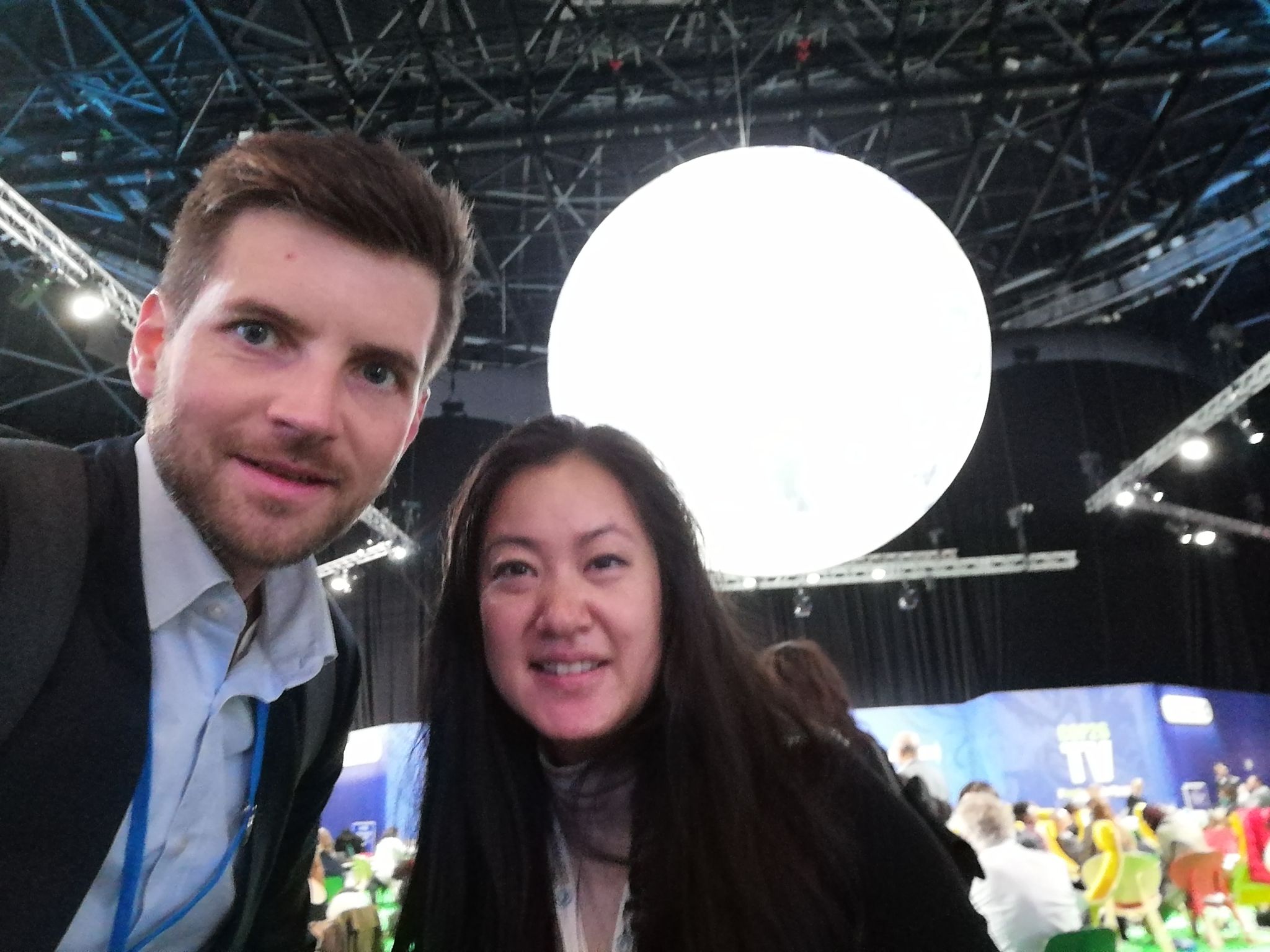
The Future of Climate Accounting
On Nov. 5, DDL partnered with the Camda community to hold a lively panel discussion to showcase next-generation solutions for climate action accounting. The panel featured two projects – the Google Environmental Insights Explorer and Climate Trace – two efforts that are leveraging digital technology to bring clarity to climate emissions data on a scale never seen before.
One of the panelists was Nicole Lombardo, who leads business strategy & partnerships for Google’s Environmental Insights Explorer. This tool uses exclusive data sources and modeling capabilities to help cities measure emission sources, run analyses, and identify strategies to reduce emissions. Lombardo discussed how the company is using the explorer to assist cities in accelerating climate action through data-driven decisions.
“A big core of this tool is making our products and services across the board more accessible to those working in climate action,” she said.
Other panelists included Liam Bell, chief technology officer at Hypervine, Claire Bonham-Carter, director of sustainable development at AECOM, Anupam Badola, data scientist at Corestrat Capital, and Francis X. Suarez, the mayor of Miami.
During the session, Mayor Suarez stressed the “need to equip our [Miami] residents with information” and “to create monitoring systems to identify our [Miami] vulnerabilities.” According to Mayor Suarez, “technology is a key factor to deal with these emerging climate threats.”
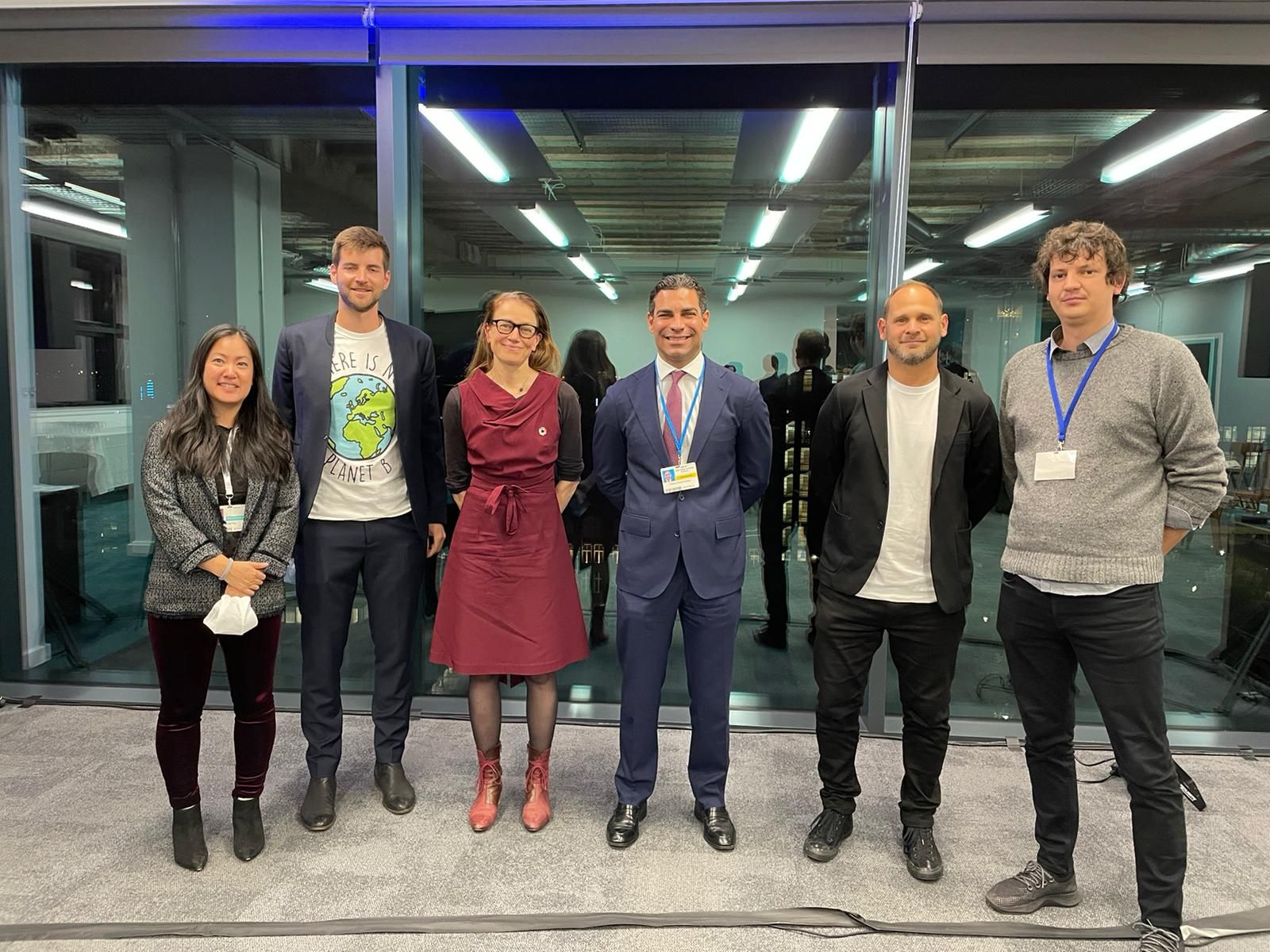
Tracking Credible Climate Action
In partnership with Camda and the ClimateWorks Foundation, the UNFCCC hosted an event on Nov. 6 to highlight the latest work being undertaken to track climate actions from non‐party stakeholders. Along with the Open Earth Foundation, DDL took part in the event to present our Declaration of the Climate Action Data 2.0 workgroup.
Camda was formed in 2017 in response to a call from the Executive Secretary of the UNFCCC. At the Nov. 6 meeting, the Climate Action Data 2.0 initiative, co-convened by Camda, DDL, and the Open Earth Foundation, launched the declaration, which represents collaboration between key organizations and individuals working on both existing data disclosure platforms and emerging technologies that can support climate action analysis, including blockchain, satellite imagery, and machine learning. It also serves as a commitment to supporting the workgroup community in assessing the collective impact of climate action to track ambition and progress made by subnational and non-state actors in alignment with the Paris Agreement’s Global Stocktake for 2023.
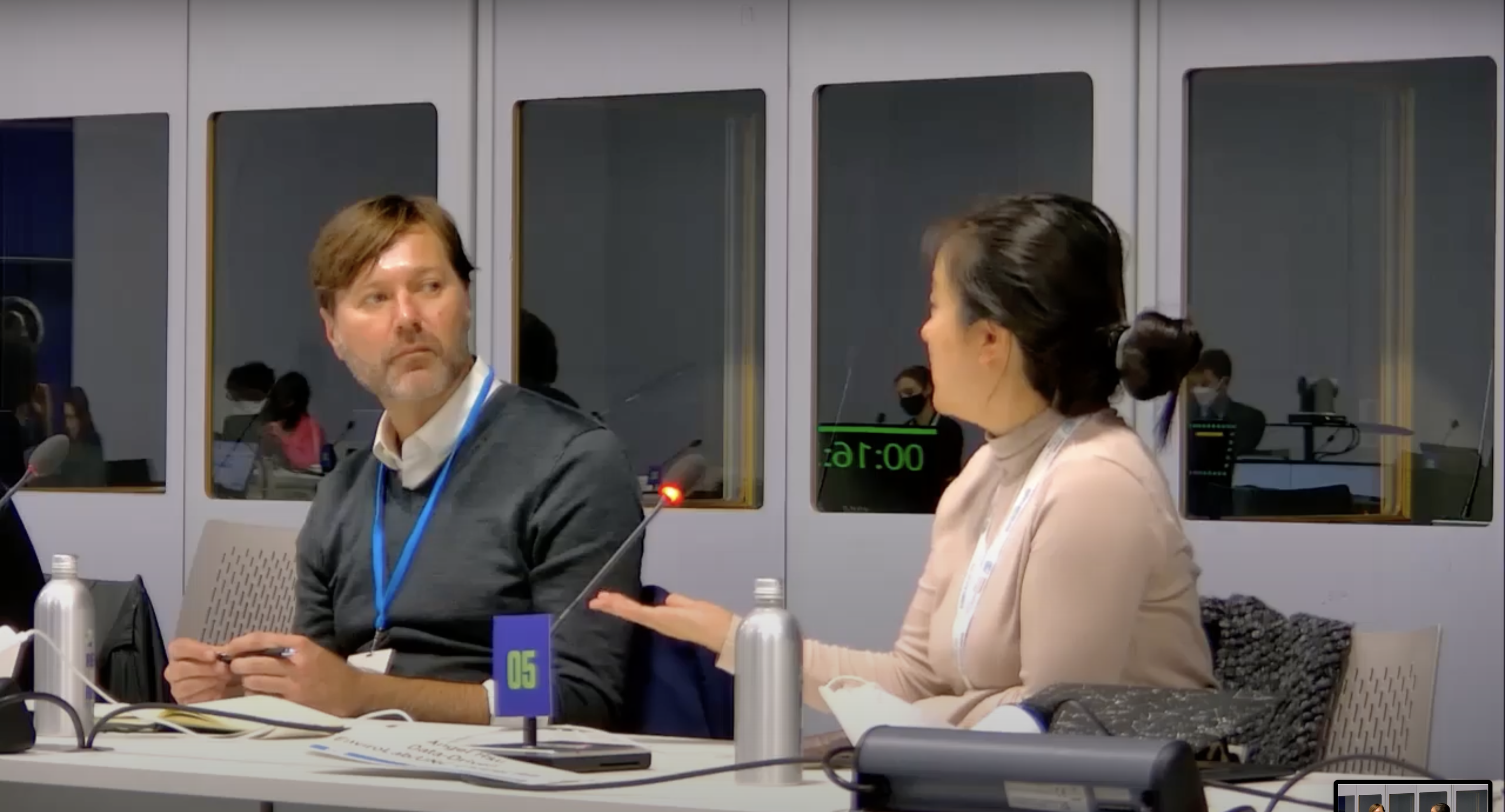
The event also highlighted the enhancements made to the UNFCCC Global Climate Action portal (GCAP) to support the tracking and recognition of credible action, which the Camda community collaborated on. The Global Climate Action Portal was relaunched to address the Pressing Record Declaration made at COP25 to track the progress of voluntary climate actions made by stakeholders, including states and regions, cities, businesses, investors, and international cooperative initiatives.
You can watch the entire Nov. 6 event here via the UNFCCC’s livestream service.
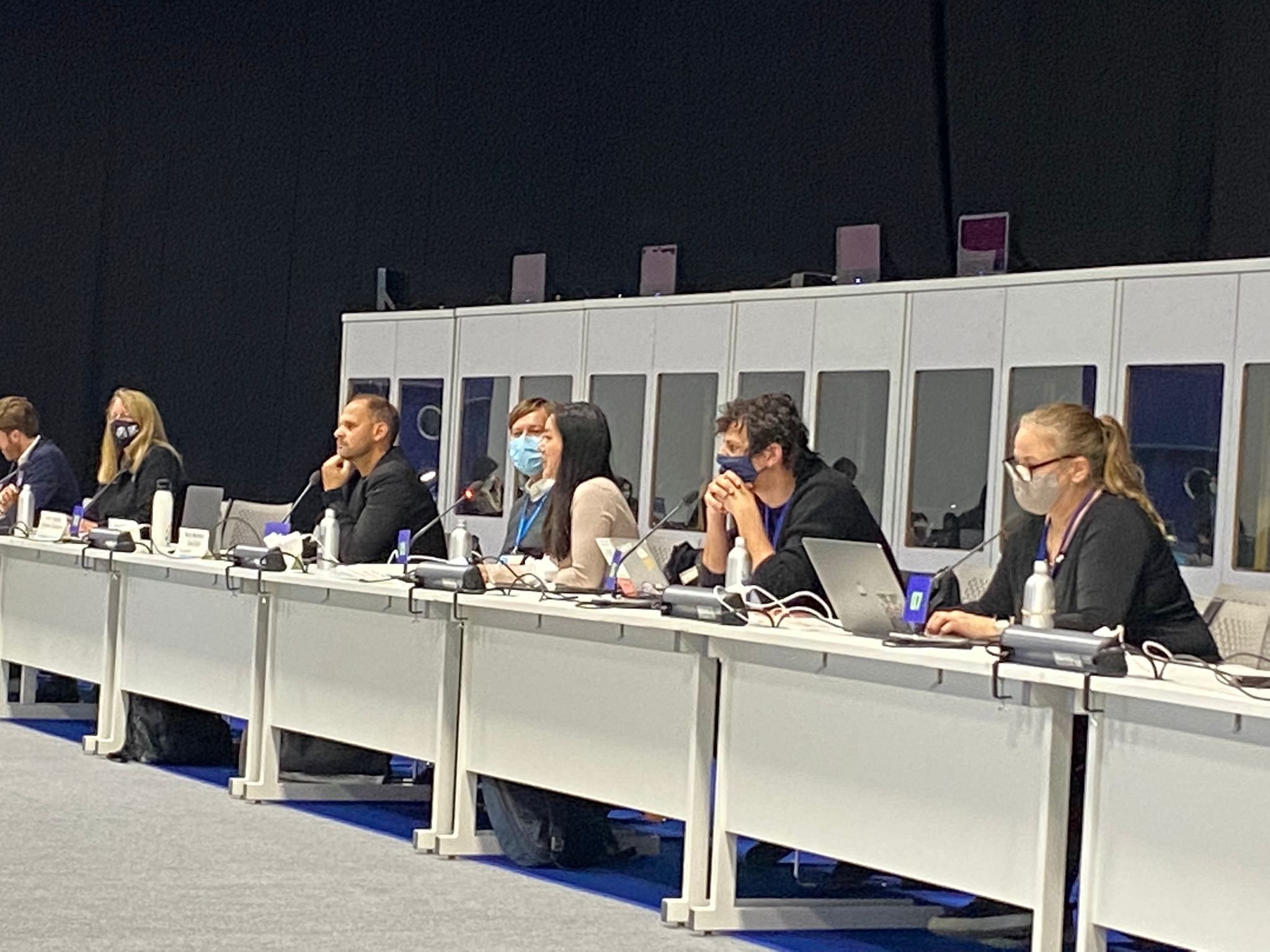
Outreach opportunities + research highlights
COP26 also provided opportunities for DDL to showcase its work in climate policy. Director Angel Hsu was featured at the official UN Climate Change’s COP TV booth discussing the importance of data in generating accountability for the Paris Agreement. She also spoke at the Bellona Foundation’s ‘Climate accounting guide: How to spot false claims’ event, highlighting DDL’s work to track the growing landscape of city, region, and business net-zero pledges. Immediately prior to COP, DDL launched the Net-Zero Tracker – a one-stop shop that features near real-time tracking of city, region, company, and country net-zero pledges.
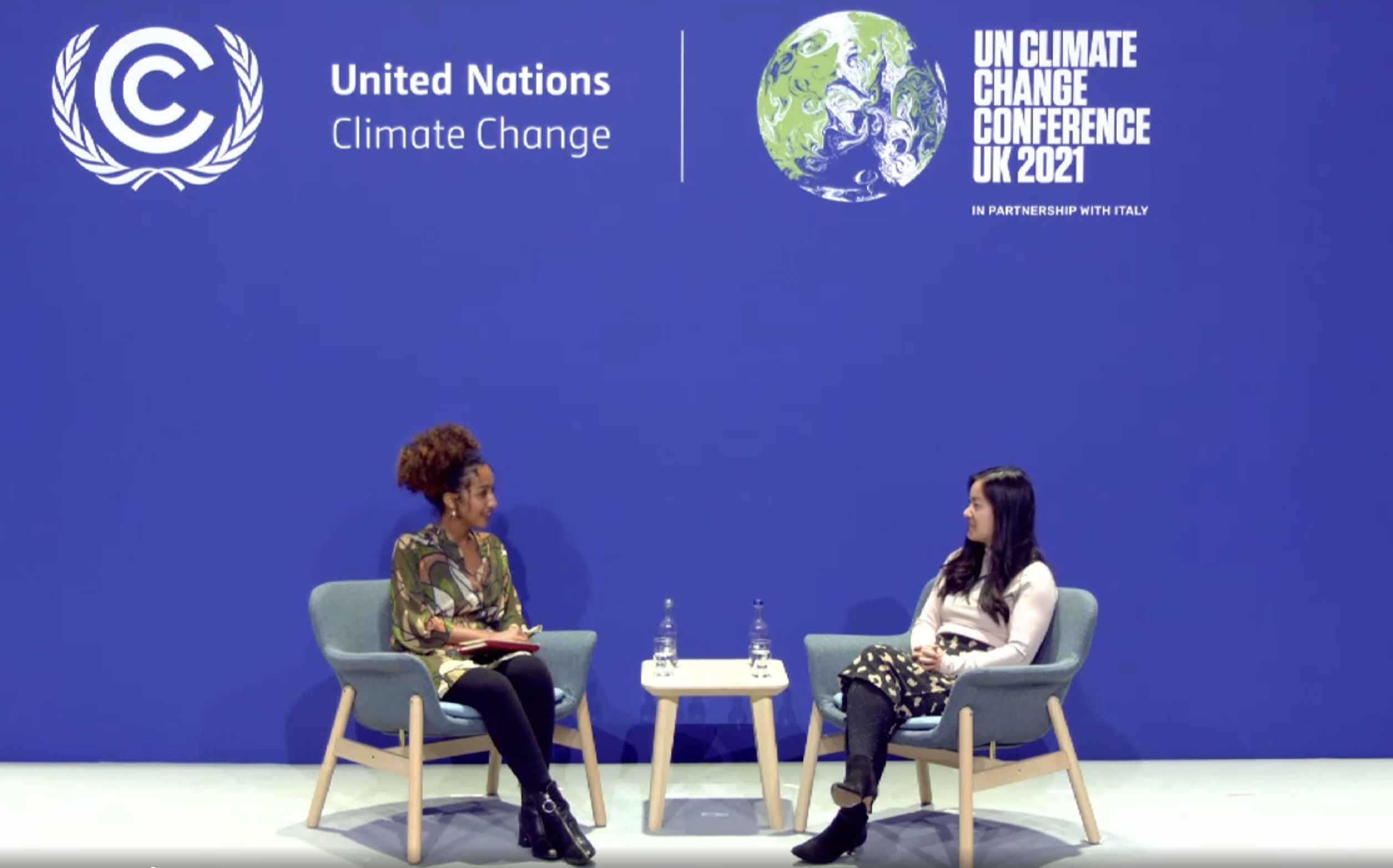
Our Post-doctoral associate Marco Schletz was a panelist at the Climate Change AI and Climate TRACE event on “A Clearer Picture: Towards Radical Transparency in Measurement, Reporting and Verification of Climate Action with AI”. In this event, the panel discussed the importance of creating interoperability between emerging technologies such as Internet of Things sensors and satellite data, AI, and distributed ledger technology to build inclusive systems across all climate stakeholders. These technologies play a critical role in enhancing global transparency and accountability and creating novel economic models to mobilize finance, protect communities, and democratize actionable information. The session recording is available here.
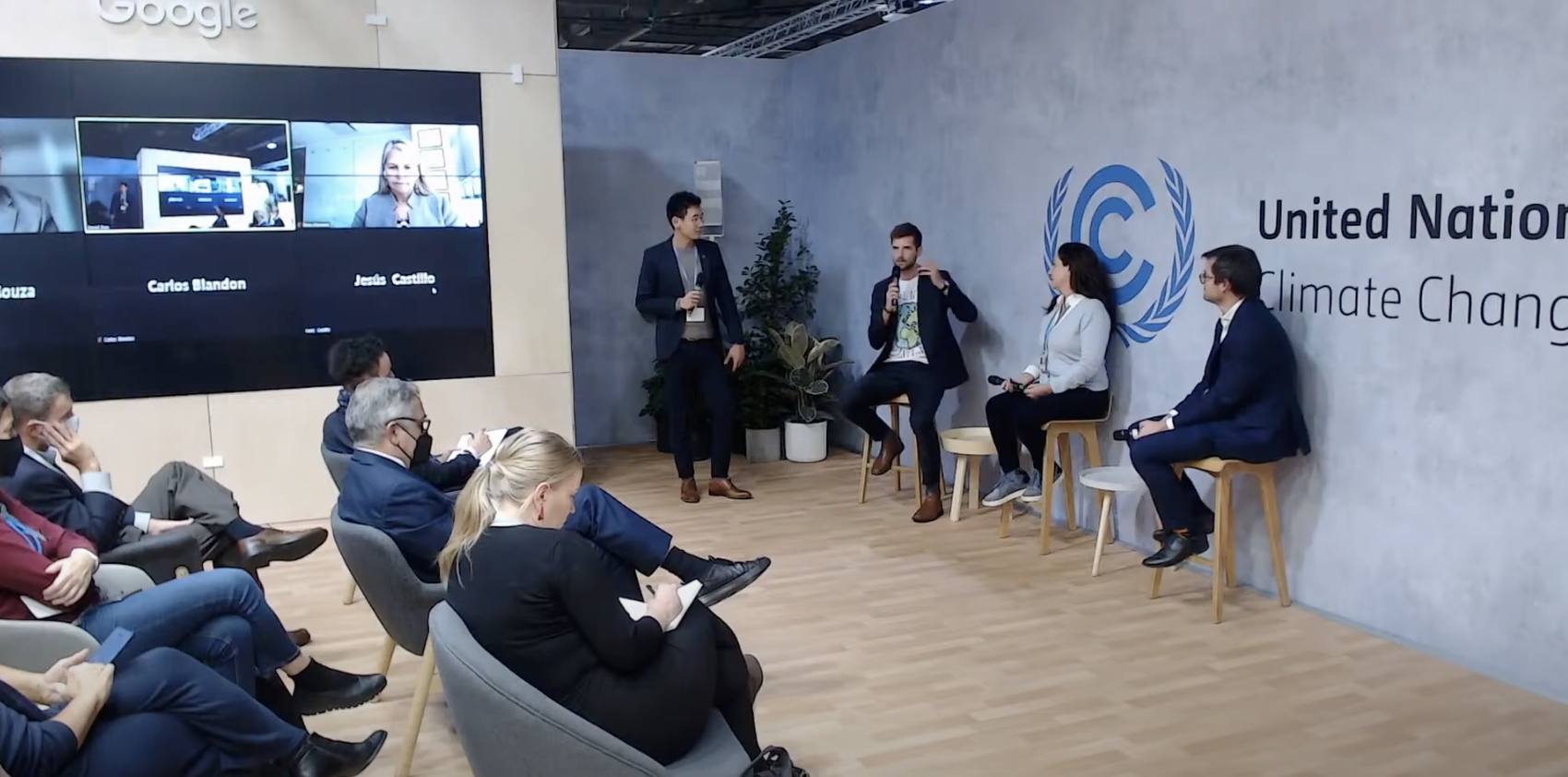
Next Steps
DDL is continuing to work toward transparent and equitable climate action. Through exciting new partnerships with organizations like Google and Arboretica, we’re expanding our research and climate action data tracking capabilities. We’re also continuing to advance our partnerships with the Open Earth Foundation, Camda, and more through the Climate Action Data 2.0 workgroup to facilitate collaboration between data, tech, and policy experts. You can keep up with our work through our Twitter and LinkedIn.

Recent Comments